Property Values
Distance from parks and trails is known to influence residential property values. Nationwide research shows that the premium for proximity to these spaces can affect market values up to 2,000 feet by 20 percent or more.
Increased value of nearby homes based on the proximity effect
Incremental Property Tax Value
Disaster Response
Wildfires are a natural part of many ecosystems and cause severe air pollution, loss of human life and damage/destruction to the built and natural environment. When fires burn more frequently and consume large areas, the plants that re-colonize burned areas may be less efficient at carbon uptake due to the years to return to maturity. The loss of tree canopy can lead to an increase in atmospheric CO2 levels, which contributes to global warming and climate change.
Reduction in Carbon Sequestration Capacity resulting from trees lost to wildfires, disaster, or mortality (in Metric Tons)
Environmental Impact
Parks have been proven to positively impact the environment and reduce the cost of storm water management, pollution mitigation, energy consumption, and over environmental-related issues.
Select calculation you would like to include:
Greenhouse Gas & Emissions
Trees & Environmental Areas
Water Conservation
Ecosystems Value of Trails
Tourism
From majestic parks to oceanside beaches and sports tourism destinations, visitors are attracted to California's natural resources and spend money on food, travel, and lodging during their stay, bringing new dollars and tax receipts into the region as tourists.
Annual Spending Generated
through Recreation
and/or Events
Public Safety
Parks have a positive impact on deterring crime within local communities - positively engaging youth during out of school and/or after school hours, helping to prevent them from either committing crimes and/or being a victim of crime.




